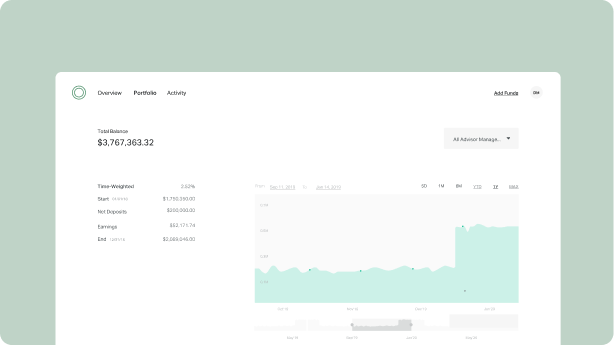Note: this page was updated on May 16, 2024.
Going independent provides financial advisors a unique opportunity to improve their clients’ experience while at the same time pursuing personal fulfillment and professional growth.
If you’re a Pennsylvania advisor considering making the transition to independence, there are a range of requirements to be aware of when starting an RIA. From understanding Pennsylvania’s specific regulatory landscape to establishing your practice, this guide will answer FAQs and offer a step-by-step approach to becoming an RIA in Pennsylvania.
Who is required to register in Pennsylvania?
If you manage less than $100 million in assets and serve or market to more than five residents in Pennsylvania, you typically must register with the state as an RIA. Note: if you manage assets exceeding $100 million, you may need to register with the SEC instead.
The state registration process is overseen by the Pennsylvania Department of Banking and Securities (DOBS), and involves several key steps and requirements.
What licenses does an RIA need in Pennsylvania?
To become an RIA in Pennsylvania, you must first pass certain exams or hold specific professional designations. The most common way to meet this requirement is by passing the Series 65 exam. Alternatively:
- You can pass the Series 66 and Series 7 exams combined
- Obtain another designation, such as CFP, CFA, CIC, ChFC, or PFS.
These licenses demonstrate your sufficient knowledge and expertise in the field of investment advising.
For an even more in-depth look into becoming an RIA in Pennsylvania (or elsewhere), explore our Going Independent series. This comprehensive how-to guide will walk you through all aspects of the move to independence, detailing compliance setup, client transitions, strategies for scaling your new firm, and more.
How much does it cost to register an RIA in Pennsylvania?
All RIA firms that register with the state of Pennsylvania must pay annual registration fees for both the firm itself, and each IAR it employs. Those annual fees for Pennsylvania in 2024 can be found below:
RIA Fee: $400
Investment Advisor Representative (IAR): $135
FINRA Annual IAR Processing Fee: $10
How to register as an RIA in Pennsylvania
Registering to become an RIA in Pennsylvania requires advisors to complete all necessary documentation, as well as set up ongoing procedures to ensure they remain in compliance. The basic process is outlined below:
- Prepare Your Documents: Gather all necessary documents, including Form ADV, financial statements, and disclosure documents. Ensure all information is accurate and current. Many of these documents can be found on the Pennsylvania DOBS website.
- Register with FINRA: Create an account with FINRA's WebCRD/IARD online system. This is where you will submit your registration application and other required documents.
- Pay Registration Fees: Pay the required initial and renewal state registration fees through the Investment Adviser Registration Depository (IARD) system.
- Complete Form ADV: Fill out Form ADV Part 1 and provide brochures in Form ADV Part 2A and Part 2B. These forms will provide detailed information about your firm and its services.
- Establish Policies and Procedures: Develop the necessary policies and procedures for your firm, such as a Policies and Procedures Manual, Client Advisory Contract, Code of Ethics, Privacy Policy Statement, Anti-insider Trading Policy, and Business Continuity Plan.
- Register Investment Advisor Representatives: Investment advisor representatives (IARs) will also need to register individually. They must complete Form U4 on CRD and meet the examination or designation requirements.
- Maintain Compliance: Once registered, it's crucial to stay compliant with all regulatory requirements. This includes updating your Form ADV annually, paying renewal fees, and ensuring that your policies and procedures are up to date.
Financial statement requirements for RIAs in Pennsylvania
As part of the registration process, RIAs in Pennsylvania must submit financial statements for their business, including a balance sheet and income statements. These should be prepared by your accountant or management team and provide a clear picture of your firm's financial health.
How long does it take for RIA registration approval in Pennsylvania?
The process of registering as a Registered Investment Advisor (RIA) in Pennsylvania typically spans between 45-90 days, starting from when you first initiate the process until the Department of Banking and Securities officially confirms the filing.
Once you have submitted all required documents and paid the registration fees, Pennsylvania regulators may spend up to 45 days reviewing your RIA registration application. During this time, receiving a "deficiency letter" requesting additional details or clarifications is not uncommon.
Responding to a deficiency letter demands meticulous attention. Advisors should address any concerns promptly and thoroughly to facilitate a smooth approval process.
RIA forms and policies checklist for Pennsylvania
To help you navigate the RIA registration process in Pennsylvania, here's a checklist of forms and policies you'll need:
- Form ADV Part 1 (online)
In this portion of the ADV, RIAs will disclose information about how they conduct business. The information includes details about the advisor's business and ownership structure and any affiliations related to business practices, clients, and additional information about employees. Part 1 is also used to upload ADV Part 2A and Part 2B.
- Form ADV Part 2A (paper and online)
Form ADV Part 2A is your firm's brochure that details the RIA's services, fees, disciplinary disclosures, and other details. As with other states, Pennsylvania requires it to be written in plain English.
- Form ADV Part 2B (paper and online)
Unlike 2A, this part is all about the advisor. It contains information about the advisor's employment, education, conflict of interest, and disciplinary information. Anyone else at the firm giving investment advice to clients, including each IAR as well any Executive Officers, must also have a Form ADV 2B.
Both of these brochures are given to your clients, prospective and current.
- Business Formation Documents
Copies of articles of incorporation, partnership agreement or articles of organization depending on your firm’s business structure, and any amendments.
- Financial statements
These are your balance sheet and income statements, discussed above.
- Policies and Procedures Manual
For your Policies and Procedures Manual, you must include your RIA’s internal policies on all parts of your business. From handling clients’ complaints to training new advisors to join your firm – every policy and procedure you practice at your RIA must be included and explained in this manual.
Additionally, you will need to include your RIA’s Information Technology Policy, Anti-insider Trading Policy, Business Continuity Plan, and Anti-money Laundering Policy.
- Client Advisory Contract
In this contract, you will detail the relationship your RIA will have with your clients. This contract is also required to meet the regulatory authority standards for client advisory contracts in Pennsylvania.
- Code of Ethics
This formal document outlines the ethical and professional standards expected of advisors registered with the SEC or Pennsylvania regulators. The code of ethics ensures advisors act in the best interests of their clients, promoting integrity, fairness, and honesty in all their professional activities.
- Privacy Policy Statement
Your RIA’s Privacy Policy is given to your clients at the beginning of your agreement and must be shared on an ongoing basis annually. It must explain how the firm stores and handles client information.
Your policy should be tailored to your RIA’s specifications and must meet the state of Pennsylvania’s compliance requirements.
Ready for independence?
Starting your own RIA in Pennsylvania and working your way through the registration process will take some time, but having the right custodian and the right tools at your disposal can help make the path to independence much more manageable.
About Altruist
Altruist helps advisors seamlessly transition to a modern custodial platform built specifically for RIAs. Simplify your tech stack, reduce overhead, delight your clients, and grow your business. True independence awaits.
If you're ready to make the leap, our team of experts is here to help you navigate the path to forming an RIA in Pennsylvania – schedule a call today.
Still deciding? Explore our in-depth RIA Launch Kit that includes even more detail about the essential steps to get your RIA off the ground in Pennsylvania and beyond.
Altruist and its affiliates do not provide legal advice, so it’s important to check with a qualified professional for each state’s registration requirements.
















